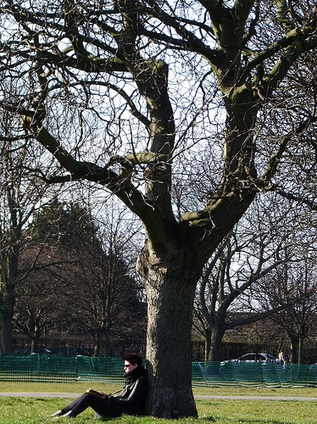Insights from the literature of extraordinary results
by Jordan Myska Allen, a lover of life and entrepreneur. He acts as a psychological, spiritual, and professional consultant and practices applied integral thinking.
I recently read “The One Thing” by Gary Keller and Jay Papasan. The second section identifies six “lies” that mainstream American culture mistakenly propagates. Keller and Papasan argue that we can achieve “extraordinary results” by no longer believing these lies.
These lies also keep us from being happy, as we put our faith in a sham. Yet in this article we will focus on the underlying truths instead, helping us unlock some keys to a greater sense of wellbeing.
1. Everything Does Not Matter Equally
Our culture has taken positive strides towards equality in social justice, and more need to be taken. Yet in our personal lives we need to more emphasis on consciously choosing inequality through priorities. Have you prioritized the things that you know will make you happy? Or are you just trying to complete all of the tasks on your list?
Try not to get caught up in the game of checking off items on a list, and remember that saying “No” to one thing is always saying “Yes” to something else.
2. Multitasking Doesn’t Work
Numerous studies have demonstrated that multi-tasking simply doesn’t work. Humans cannot actually put more than one thing into primary focus, so when we think we are multi-tasking we are actually switching from thing to another, and back again. Nowhere is this more obvious than the incredibly dangerous and widespread habit of texting while driving. Even talking on the phone while driving, hands free, has been demonstrated to reduce reaction times significantly.
If you multi-task, you are actually decreasing your efficiency, which will inevitably lead to stress and dissatisfaction. For a relaxed and satisfied life, get rid of distractions and focus on one thing at a time instead.
3. Forget Discipline, Focus on Habits
Instead of imposing discipline, we should focus on building a new habit, one at a time. Research from University College of London revealed that habit forming can take anywhere from 18 to 254 days, with the overwhelming average of 66 days. Use what discipline you have to build the most important habit, and let the other ones go. After a couple of months you will not need to use discipline anymore because the action will be habitual, and you will be able to re-focus your discipline on some new important thing.
What is the most important habit you can form to increase your happiness?
4. Willpower Is Like A Battery
Willpower can be depleted when overtaxed, but it recharges with proper rest and nutrition. Figure out the highest priority of your day, week, month, year, and life, and use your willpower to accomplish that before anything else.
When it comes to happiness, do you assume you will have the willpower to change your emotional state when something goes awry? How might you change your day to have the willpower you need, when you need it?
5. Instead of Seeking Balance, Seek Counterbalance
We talk about a work-life balance, or a balanced diet, as if balance itself were a higher goal. Instead, focus on what is most important in your life based on your purpose for being. When it comes to happiness, are you hoping it will be balanced by sadness? Probably not. Strive for what you care about, do what is most important, give that all of the attention it deserves, and counterbalance effort towards that end with rest whenever necessary.
You may also consider Keller and Papasan’s suggestion to separate work life and personal life as their own buckets to be individually counterbalanced.
6. Dream Big
Most Americans have heard about shooting for the moon to land in the stars, yet most still start imaging the obstacles to a big dream before they even finish imagining the dream. Most humans have a natural fear of failure, and this too keeps us from dreaming big.
Accept the fear when it arises and dream big anyway. Note the obstacles that might arise and keep dreaming. If you can get to a vision large and inspiring enough, you will figure out the bold actions necessary to circumvent those obstacles. As the authors point out, “thinking big isn’t the absence of doubts, but moving past them.”
Putting it All Together
What happens when we let these ideas inform our quest for well-being and personal growth? What happens when we dream big, allow ourselves permission to be unbalanced in pursuit of this dream, use our willpower selectively to build a habit of bold actions toward this end, deny distractions, and place this goal as the highest priority in our life, giving it the full time and attention it deserves?
Image: Some rights reserved by oatsy40

